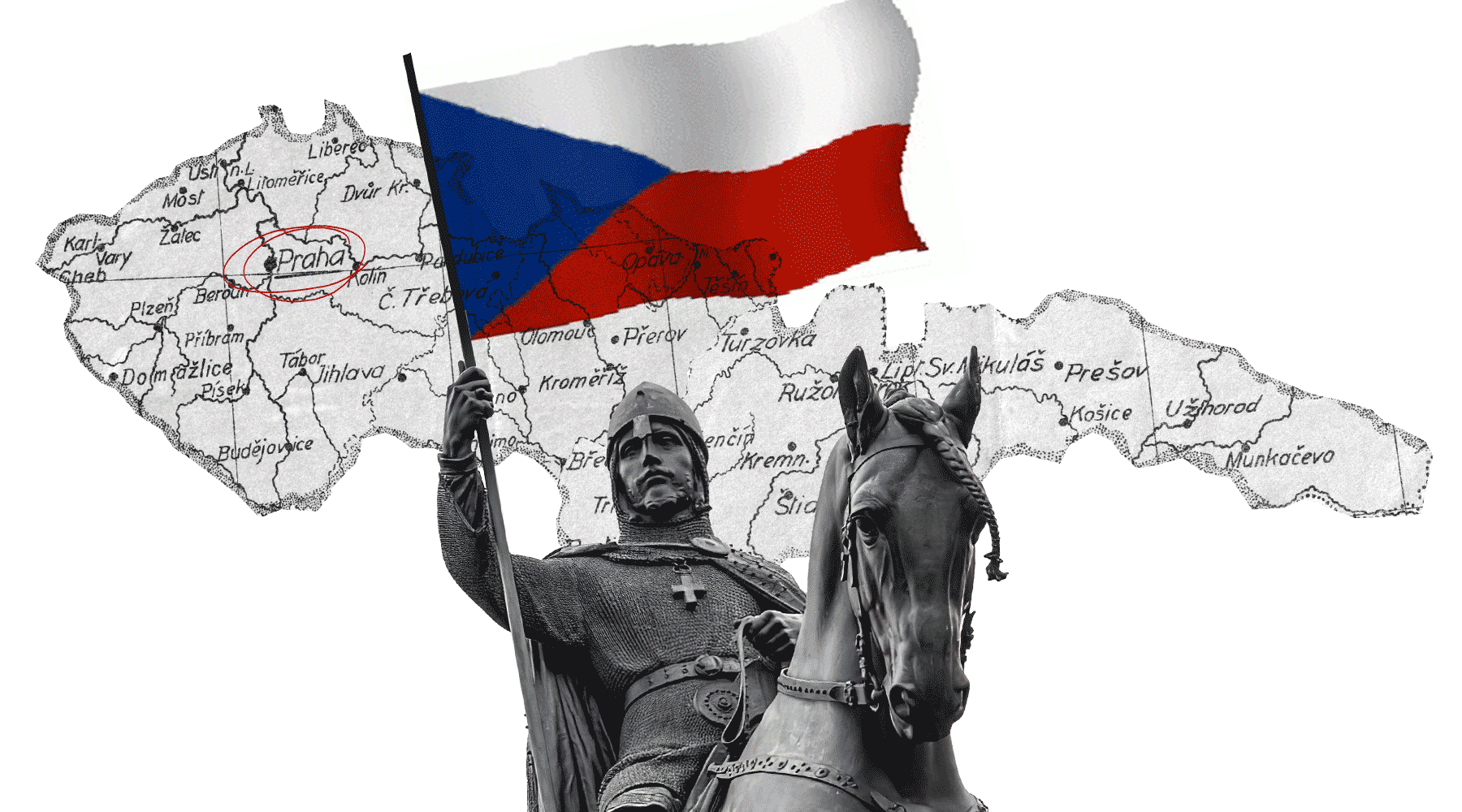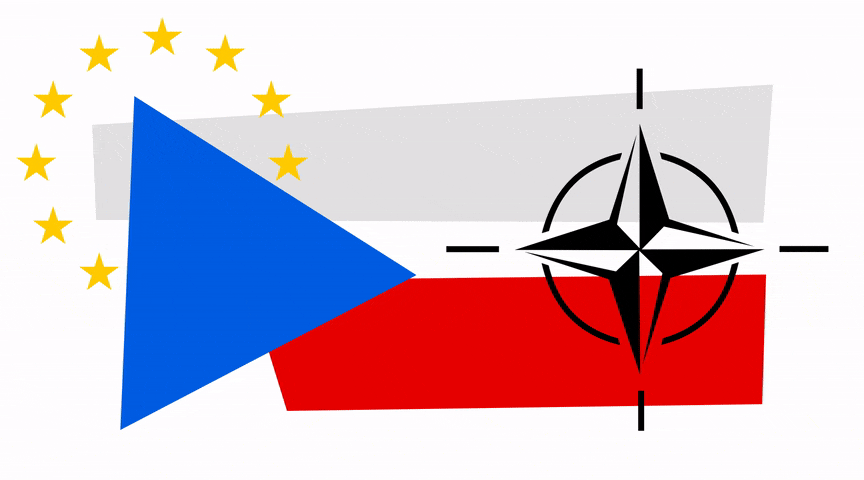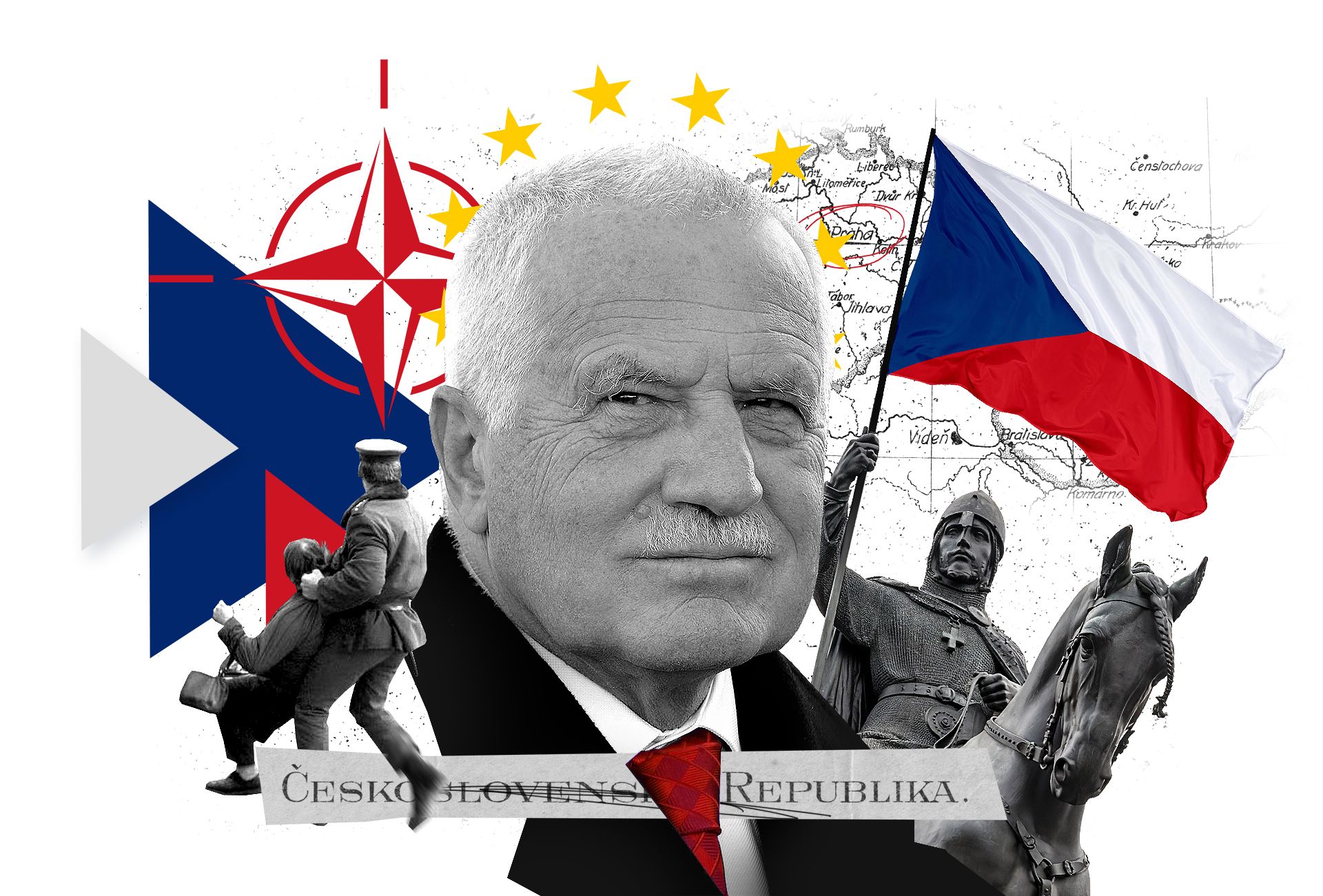We live in a post-democracy where major decisions are not made at home but somewhere else—says Václav Klaus, former president of the Czech Republic, who also appoints that Russia was provoked to start the invasion of Ukraine. Our interview on Hype&Hyper.
Mr. Klaus, you served as Prime Minister and President of the Republic when the Czech Republic joined NATO and the EU. It was a turbulent time with many opportunities, and today the whole Central European region is part of NATO and the EU. In these difficult times of war, how should we look to the future?
It's a topic for a book–to answer it in one or two sentences is, of course, not possible. I was someone who sent the letter asking for EU membership in January 1996, and I was very influential in joining NATO. There is no doubt that there was no better chance for countries like the Czech Republic and Hungary than to join both NATO and the EU. I did it with some question marks–I must openly admit that. There was a continuous process; we didn't have a radical change in November '89. The slogans on the streets in Prague were ‘back to Europe’. That was the main topic, the main idea, which means we wanted to be a normal European country–whatever it meant. Just a normal European country after 40 years of communism. No doubt about it, but I was the first one in the country who dared to add something to it. And my point was considered a provocation: I used the famous Italian term ‘avante’ into the European Union. There is a difference which means I was always suspicious about the meaning of the European integration projects.
What was the basis of the suspicion?
For me, suspicion was always a problem. We spent centuries in the Austro-Hungarian Empire; then there were years of German occupation finished by the decades in the Soviet Empire. I wanted to be free, I wanted to have a sovereign country, and I always had doubts about the meaning of the European integration process. In the very beginning, it was called integration. Later, it became something else; it became a unification of Europe. In my various articles and books, I discussed the shift from integration into unification as a fundamental problem of Europe as I have always been in favor of integration, but I am very much against unification. This is my fundamental background and approach to all of that. That's the reason why I am very suspicious of the concept of the current version of the European integration process, which turning points were the Maastricht Treaty in 1992 and the Lisbon Treaty in 2009. I was very much against the Lisbon Treaty; I was the last president who signed it–I have many doubts about the rationality of the European integration process.
You mentioned that there were question marks in the 1990s. Could you highlight a few exact question marks?
I am still afraid of losing our sovereignty and being masterminded from remote cities. It was Vienna once, then Moscow, and now it's Brussels–this is the main issue. I also must say that the results are not very positive: by entering the EU, we wanted to be a normal European country because, in the 1990s, to be normal meant to be a member of the European Union. I remember when I was giving the EU application in Brussels, I knew perfectly well that if you said no to the EU, you would be considered as the friend of Mr. Milosevic in Serbia or Mr. Lukashenko in Belarus. I am sorry to say: I didn't have any other chance than to join the EU. It's a tragedy that the EFTA (European Free Trade Association) disappeared; it was a treasure at that time. I am very skeptical about the developments of Europe, and I don't want to be dictated by Brussels.

There is a fight for national sovereignty in Central Europe. What are the milestones of this fight? What do you recommend for youngsters?
I recommend that the youngsters have open eyes and not just swallow the propaganda pills. I would say that people like me feel frustrated today because the goals, aims, and ambitions we had at the moment of the fall of communism haven't been realized. They haven’t become real. We live in a post-democracy where major decisions are not made at home but somewhere else. I would dare to say, and I think I have never discussed it with anyone from Hungary, but at least the feeling of some of us is that the degree of freedom in discussions, in TV debates, for example, is now comparable to the era of the late communism of the 1980s. I don't compare it with the early communism in the 1950s, but with the late communism. And I can easily imagine you have the same feeling here in Hungary because there was relative freedom in Hungary in the 1980s. And that's my main concern!
In one of your speeches, you mentioned that globalization is a term for journalists and the media, not economists. Then what is globalization, and what should we use instead of this term?
I know that this is a rather provocative statement, but I must say that I spent most of my time as an academic economist who spent hours, days, and nights reading sophisticated economic and other social science journals. I studied all the textbooks, and I must tell you that before reaching the 2000s, it was a joke. I had never heard the term globalization though I was deeply involved in studying social sciences. Globalization was not a term; it's a ‘quasi-modern’ debate of the cosmopolites and the globalists. I prefer talking about the internationalization of human activities, not just business, and not just in economic terms. There are many other directions of internationalization of human activities, more or less of internationalization. This is something that can be discussed, even somehow measured. Globalization is something else. Internationalization means a shift from nationalism to internationalism. And what's the opposite of globalization? Simply nothing. Those who coined the term globalization were not friends of the nation-states and did not accept the nation-state as the reference point, as the starting of the original entity or organization in human society. In human society, you have a family, you have a city with a local community, and you have a nation. Globalists like to live in the planetary dimension, which I reject. I'm not cosmopolitan. At a conference where there are many Americans, they know my past and political roles, and all of them ask me during breakfast: where do you live? For me, it's a stupid question: the only possibility is to live in Prague and to make trips abroad. I still think that I belong somewhere and not anywhere.

There is an ongoing war and conflict between Russia and Ukraine and, therefore, between the West and Russia. What would you say are the biggest challenges for the Central European region?
Well, it's easy to repeat politically correct phrases. Russia invaded Ukraine, and Moscow is the aggressor. This is not a debatable point. This is clear and absolutely evident. But something else is debatable: why did it happen? What motivated Russia to do that? That's a fundamental issue. The main answer to that question in the press of Western Europe and the US is the permanent Russian imperialistic ambitions. But I don't believe this is the right answer; this is just a very simple answer. This is an answer which doesn't require much deliberation. I say that Russia was provoked: Russia was provoked to start the invasion of Ukraine–that's my main point. Your question was about Russia and Ukraine, but I don't think that the substance of the problem is the Russia-Ukraine relations. The problem’s essence lies in bad international relations. Let's look for a solution there and not expect that there will be tomorrow morning talks between Zelensky and Putin and that they will come up with a solution to the war. This is a joke; no one seriously thinking can suggest anything like that. I think the West, and especially the United States, must start serious negotiations with Russia. I know it's politically incorrect to say this in Europe these days because it somehow implicitly admits that we could use the situation at the battleground as a starting point, but I think this is necessary. Waiting for either Ukraine or Russia to fail is not a solution.
What is your vision for the Central and Eastern European region for the next couple of decades?
Do you ask about a vision, or do you ask about my forecast?
Let’s make a forecast.
Because I have absolutely no vision, this is the wrong assumption, the wrong way of looking at the world. This is not an issue of vision. I'm not sure what the region will do. If European unification continues, which is a possibility, the individual European nation-states will more or less disappear. We will become provinces of the EU, having our governors, not prime ministers. Years ago, the German Ministry of Justice was asked by the German government to give some estimate of the proportion of the bills created in Germany and in the European Union. The German Ministry of Justice made a study and said that 85% of the bills are created in Brussels and sent as directives to individual EU countries. This is much more than in the United States of America. Individual US states, like Arkansas, Mississippi, or California, are not getting 85% of their bills from Washington, DC. I am afraid that if this tendency continues, there is no chance for your future; you will forget your Hungarian origins. I am an inhabitant of the European continent, but not European. I always say I never use the term “I am a European.” I use it only in very remote places like Australia. I can answer that I am from Europe, but otherwise, I don't feel being a European. I may be feeling being Central European, much more than European. Without saying anything negative against countries like Finland, Portugal, or Cyprus, just to take three examples–but I don't think I have many things together with all of them.
Václav Klaus is a Czech economist and politician who served as the second president of the Czech Republic from 2003 to 2013. From July 1992 until the dissolution of Czechoslovakia in January 1993, he served as the second and last prime minister of the Czech Republic while it was a federal subject of the Czech and Slovak Federative Republic, and then as the first prime minister of the newly independent Czech Republic from 1993 to 1998. We had discussion with him in December 2022, at the Danube Institute, Budapest.

Slovenian Days in Dallas

Offbeat travel guides by Zara and Wallpaper*










